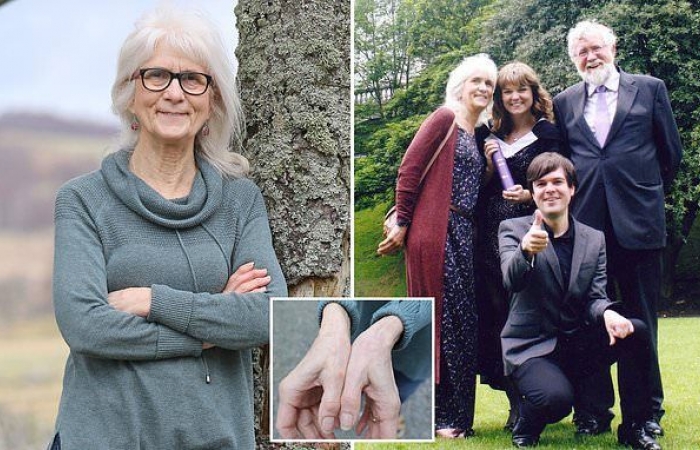Jo Cameron suffers from two DNA mutations that stop her from feeling pain and allow her to heal without scarring. Scientists say this discovery could open the door for a new generation of pain-relief and anxiety medications
Due to her rare genetic mutation, Jo Cameron is virtually immune to pain, she does not know she is burning herself until she smells the burning flesh. Plus, she gave birth to both her children without once resorting to drugs and she needs no anesthetic during dental work. Two DNA mutations stop her from feeling pain, she also experiences fast wound healing and remarkably low anxiety, one of which had never been discovered before.
This rare genetic mutation is believed to affect just one in several million people. Scientists hope that by studying Mrs Cameron’s genes they will manage to develop a new type of painkillers. The genetic analysis was conducted by scientists at University College London and was led by Dr James Cox, a senior lecturer in mammalian sensory genetics who stated:
“We found this woman has a particular genotype that reduces activity of a gene already considered to be a possible target for pain and anxiety treatments. Now that we are uncovering how this newly-identified gene works, we hope to make further progress on new treatment targets.”
To identify what’s behind Mrs Cameron’s desensitization to pain, scientists also analyzed her DNA and that of her relatives. It seems that her mother and daughter feel pain as normal, while her son reports some insensitivity, results of the genetic analysis saying that her son carries one of the same mutations as her. Also, her father who died, Joseph, did not feel much pain either:
“My father was a captain in the tank regiment in World War I and had shrapnel left in his leg but never felt pain. I feel sure he was the same as me. To me, it never seemed odd – I was just my father’s daughter.”
The first mutation never found before was in a section of a chromosome and was dubbed FAAH-OUT, and was previously thought to have no useful purpose but now appears this gene controls the FAAH enzyme which in Mrs Cameron switches off. That is where the second mutation is, in the gene that controls the FAAH enzyme which plays a role in pain, memory, and mood.
Mrs Cameron reports she always had memory lapses as well as forgetting words mid-sentence and misplacing her keys. These mutations seem to be offering Mrs Cameron high levels of the natural, soothing chemical anandamide, which are responsible for her sunny disposition.




